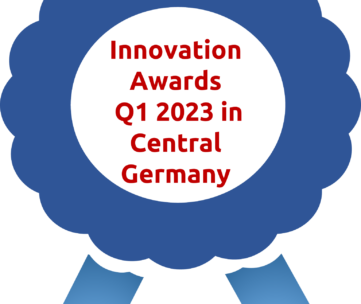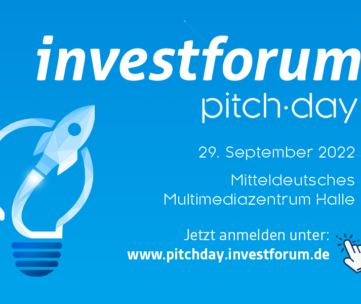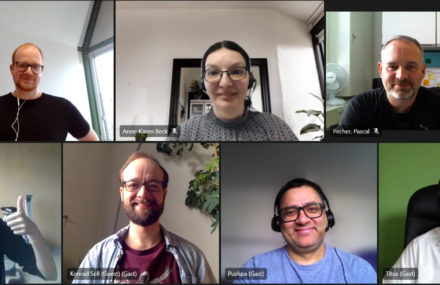
How to get Venture Capital: The Investment Process
After we introduced you to the different Types of Startup Funding it is now time to take a closer look at probably the most time-consuming (3-6 months) and difficult one to get: Venture Capital. There is quite a few steps to take into consideration when reaching out to Venture Capitalists. We summarized the investment process for you to get a better understanding of what is happening at each step.
1. Required Documents
When it is your aim to obtain Venture Capital Financing it is crucial to make proper research first. Who VC investor is appropriate for your business and industry? Who will be your contact person? Make sure to have an answer to these questions before sending out any documents. This will save you a lot of time and energy when concentrating on the wrong VC.
Once you’ve found your dream candidate you can work on your documents. For an initial contacting you should have your Pitch Deck ready. Clearly state the problem you have discovered and present your solution to fix it. Moreover, demonstrate the market and industry situation. Who is your competition? How big is the potential market size? Equally important is the team behind your startup. Show their competencies and qualifications. What value do they bring to your firm? You should also dedicate a slide to your Marketing Strategy explaing how you want to reach your target customers, a Proof of Concept and a roadmap of your milestones as well as your financing need so that VCs know what to expect. If you want you can also prepare a one-pager of your startup or a demo video of your product or service to spice up the first impression.

2. Review
After you sent all required documents the Venture Capitalists will now review your application and carefully examine your Pitch Deck. At this stage there is nothing really you can do except waiting! The assessment might take a while as the VCs analyse your whole Business Model and Structure. They take a closer look at how ambitious you are and how much effort you are willing to invest in order to make this startup working and successful. They also examine your team members and their qualifiactions and study how well your product or service fills a gap in the market.
3. First Meeting
You are invited to a first personal meeting? Well done! Not many startups reach this stage. So you can be very proud of yourself. You will meet the Venture Capitalists and have the chance to introduce yourself and present your Business Idea and Business Model in person. It is basically your time to shine! A lot of questions will be asked by the investors. Thus, prepare yourself accordingly. A good idea is to invest some time in educating yourself about how to handle investor and negotiation conversations. Look for workshops or seminars that will teach you to stay confident and determined.
4. Term Sheet
Congratulations you convinced the investors to continue the process with you. The next important aspect on the agenda is the Term Sheet which is usually a nonbinding agreement between you and the VC and about 10-15 pages long. It shows the basic terms and conditions of a potential investment and clearly states the amount the VC is willing to invest in the company. The Term Sheet will be used a basis for potentially upcoming meetings and negotiations. However, it cannot be regarded as a set business agreement yet as there is still the chance that the Venture Capitalists will decline. So don’t get your hopes up too high.

5. Due Diligence
Due Diligence is basically the last step before the final stage, the Investment Contract. It can be seen as a rigorous process that decides whether the VC will make an investment in your company or not. Hence, it is the core process which investigates the suitability of an investment. Make yourself ready to be asked numerous questions about genereal information regarding your company, accounting and financing, asset information, employment information, risk and compliance as well as legal aspects and your service or product itself. This might be nerve-wracking but a neccessary step to get the VC onboard.
6. Investment Contract
You reached the last step! You are one out of many who managed to convince the VC and got yourself a partnership. Congrats to that! Here, the initially compiled Term Sheet will be finalized and is now binding. This means a contractual agreement of the investment will be issued and signed between your startup and the Venture Capitalists. This investment agreement defines the relationship as well as the rights and obligations of both parties, the founder and the investor. This contract also has to be notarial certified and is about 100 pages long.

We hope that with our summary we could give you a good overview of how an investment process looks like to obtain Venture Capital Financing.
Join us
Are you a founder yourself and need help bringing you startup forward? Then find out more about our Accelerator Program here!

Author: Kathlen Bier
Online Marketing & Project Management
Follow us on Social Media
- IQ Innovationspreis Mitteldeutschland 2023
- Inventive spirit wanted in biotechnology!
- 2023 offers new opportunities for innovators and startups
- Weinberg Campus Accelerator is a partner at the INVESTFORUM Pitch Day
- Former Accelerator participant is doing very well: “The vision is evolving! – InLine-Med successfully closes seed financing round”









